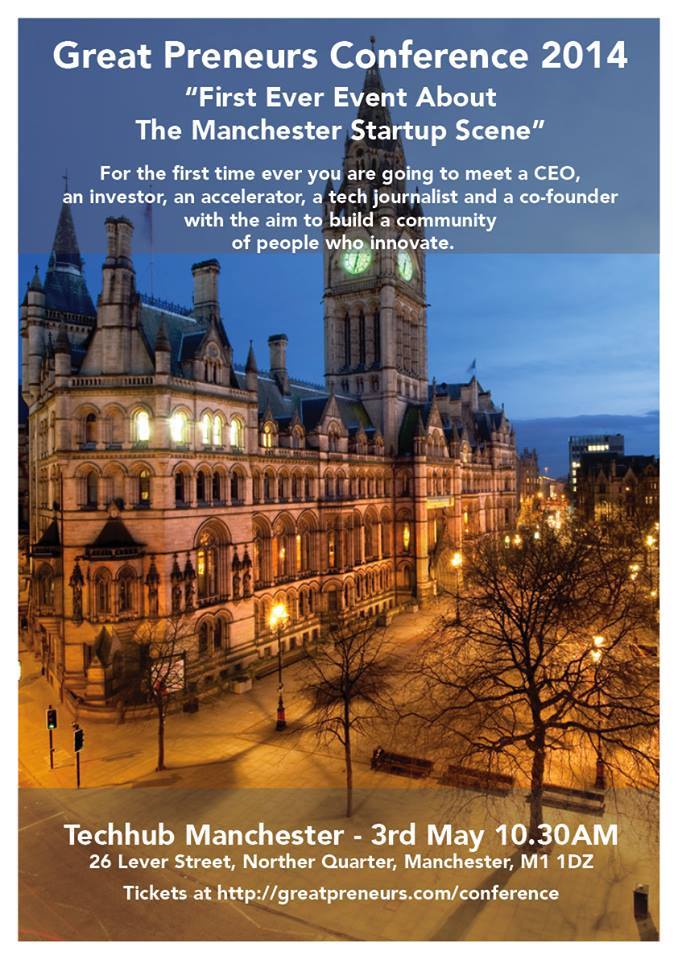I have just interviewed Matt Clifford from Entrepreneur First, an accelerator that accepts application only from GRADUATES with strong technical skills aka Computer Science students.
———
Matt Clifford is the Co-Founder and Chief Executive of Entrepreneur First, “the UK’s leading programme for aspiring tech founders”.
Can you give us the standard profile of the applicants you accept every year? Do you accept non technical people and what skills do you look for in technical applicants?
We’re looking for people who can make a big impact in a tech startup on day one. The nature of what a tech startup does means that a lot (in fact, most) of these people are going have tech skills. But there are lots of other things that are important too. A big task for a startup is gaining a very deep understanding of their customers’ needs. We’re very interested in people whose skills and experience help with that. Successful non-technical applicants tend to have impressive domain expertise or lots of skill in the techniques needed to distribute what the startup is building to customers.
Universities are looking at employability rates as a way to increase worldwide rankings and Entrepreneurship is often not considered at all. In what way do you think we should put the focus of Universities on Entrepreneurship?
Most unis have active and vibrant entrepreneurship scenes, whether that’s largely led by a university department or by a student-led society (or both). One thing outside that that we’d like to see is a greater emphasise on making and building within academic courses – that is, the combination of cutting edge academia with a drive to create actual products. There are some computer science and engineering courses from which you can graduate without ever having built anything, which seems a shame.
Why is Entrepreneur First a charity and what’s the mission behind it?
We’re not! We’re a community interest company. We don’t seek to make a profit out of our normal operating activity, but we do have an investment fund and our investors will make a profit if our startups do well. The EF team, though, is motivated by a deep sense of mission: we believe starting a startup is the most exciting career choice for the most ambitious young people and we want to make it the obvious one too.
Have you got any success stories?
Lots. We built 11 companies last year that have created millions of dollars of value. Some of the most successful ones include AdBrain (disrupting mobile advertising), Blaze (cutting-edge bike light and cycle safety products), Prizeo (YC W13), Kivo (YC S13) and many more. The current batch is just as exciting and we’ll be unveiling them to the world in March.
What’s the value of getting into an accelerator that looks at the people instead of looking at the ideas?
Well, if you don’t have an idea, one major value is that you simply won’t get into an accelerator focused on ideas! But (obviously) we think there’s more to it than that. In startups, people are way more important than ideas. Ideas in startups are essentially experiments; what’s really important is the quality and the character of the people doing the experiments – and that’s what we focus on at EF.
How many applications have you received for the summer internship and what do you expect from the 2014 summer interns?
Hundreds. We have two big goals for the summer programme. First, we want to give people the chance to get a taste of what working in a startup is like. Second, we want to give our startups access to amazing talent. Finding great people is almost always the number one issue facing good startups.
I know you have recently released a program exclusively for Girls (Code First: Girls), but do you think programs can solve the “ratio” problem or is that more a mindset issue, regarding the presence of women in technology, that we all have?
I think the issue is extremely complex. It’s something we spend a lot of time thinking about at EF. My co-founder Alice has written some great things about this. This is probably the best summary of our thoughts: “Tech shouldn’t be a boys club: what I’ve learned from getting more women into tech.”
From what Universities are your graduates from? It might be interesting to see the Universities that get people involved in entrepreneurship the most.
This year we had applications from students and grads from 105 different unis. I’m skeptical that the breakdown of our applicants and cohort by university is a good proxy for which universities get people most involved in entrepreneurship. We’re so focused on tech that it’s much more a reflection of where the best (and most practical) computer science departments are – and consequently of where we spend most time recruiting. I think our top three unis this year are Cambridge, Imperial and Edinburgh.
How many people are part of the Entrepreneur First team and are you recruiting?
There are six of us full time. Alice and I divide our time between helping the startups and working with our external stakeholders. Alex runs most of our programme activity. Zoe is in charge of all our work at universities, finding amazing talent. Chloe manages our relationships with startups. And Maddie runs Code First. We have a couple of internships open right now, but otherwise aren’t actively recruiting for permanent roles. That said, we’re always excited to hear from exceptional people who have something to offer.
What are the 3 most promising startups in London?
Well, obviously I want to name three EF ones, but that would mean picking favourites… So, picking from outside EF, I’d point to GoCardless (fintech), Thread (fashion) and Show My Homework (edtech) as people doing very exciting stuff. Full disclosure: I have friends at all three, so am hugely biased.
